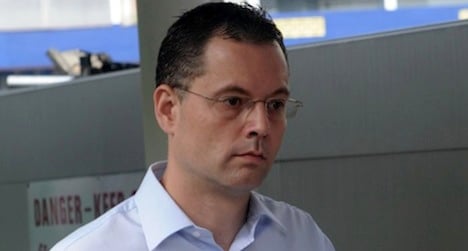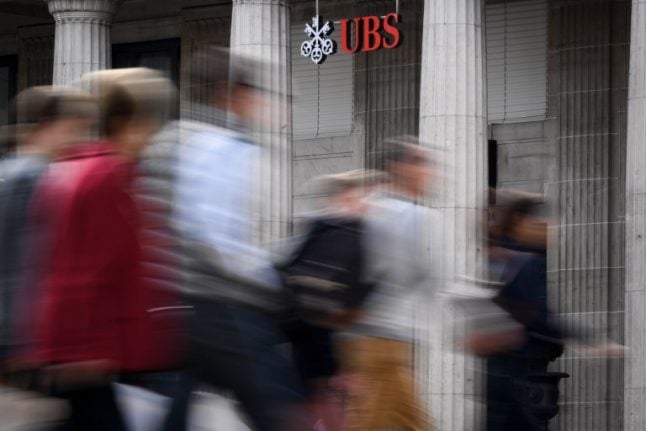Singapore Judge Eddy Tham denounced Swiss citizen Jürg Bürgin's "reckless" act of having intercourse with the 17-year-old woman on two occasions at five star hotels in 2010 and 2011.
Bürgin booked the prostitute through an escort agency website.
Wearing a light blue shirt, he looked sombre throughout the court proceedings and looked down several times as the judge read out the verdict.
"In terms of culpability, the accused clearly did not take any reasonable steps to avoid falling foul of the law," the judge said.
"He was reckless in not verifying the age of the minor," Tham said.
"He is not a naive person but someone holding a responsible position as a banker. He conceded that not everything he read (on) the internet should be accepted at face value."
Bürgin, a married 41-year-old former executive with banking giant UBS, had said at the start of his trial in March that he was tricked into thinking the girl was older than 17.
Prostitution is legal in Singapore but it is against the law to pay for the sexual services of girls under 18, in a bid to protect the young from exploitation.
The case caused an uproar last year in Singapore after Bürgin and 50 other men, including business executives, a former school principal, a navy captain and a police superintendent, were accused of paying for sex with the girl.
One of them was socialite and environmental activist Howard Shaw, 41, a grandson of Asian movie mogul Runme Shaw.
He was sentenced to 12 weeks in jail but released after eight weeks for good behaviour.
Court documents showed that Bürgin booked the prostitute, who went by the name "Chantelle", on an escort agency's website.
Bürgin made the bookings under a false name "Robert James" but the mobile number he used was traced to UBS, which had assigned the phone to him.
The judge said he had originally decided on a five-month jail term, but sentenced Buergin to four months and three weeks in jail taking into consideration the six days he spent in remand.
Defence lawyer Selva Naidu said Bürgin "doesn't intend to appeal for now" but has two weeks to decide.



 Please whitelist us to continue reading.
Please whitelist us to continue reading.
Member comments